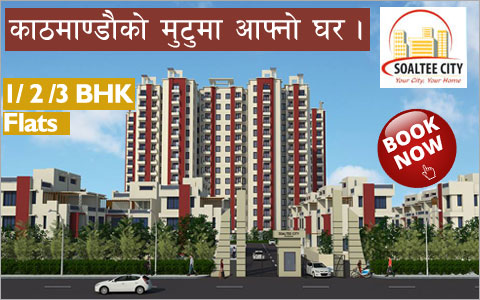National News

The turmoil in real estate market has cast gloom on the night business of the capital city as it has greatly cut down the number of customers who spent lavishly for night entertainment services.
Officials of Night Business Entrepreneurs Association of Nepal (NBEAN) said the turnover of night business centers has gone down by an average of around 60 percent over the span of past one year.
“The business had caught downward spiral after government limited our operating hours to 12 midnight in 2008. The realty slowdown now has landed a lethal blow,” said Sameer Gurung, president of NBEAN.
Currently, there are about 2300 night business centers associated with NBEAN operating in the Kathmandu valley. They include 200 dance bars, 20 discos, 30 lounge bars, 45 pubs, 40 live bands, 20 gazhal restaurants and around 100 dohori restaurants. About another 2,000 restaurant and bars associated with Restaurant and Bar Association of Nepal (REBAN) too had been enjoying good earning through late evening and night services.
If figures issued by NBEAN and REBAN mean anything, people were spending as much as Rs 102.16 million for their services every day till a year ago. But now, the associations estimate the spending to have dropped to Rs 42.48 million.
The night businesses in the capital had got the boost largely from the remittance income and real estate boom. Entrepreneurs said the volume of remittance-based customers visiting their outlets has barely changed. “But the turnout of people engaged in property dealings has nosedived,” Gurung told Republica.
According to officials of NBEAN, people from real estate sector used to form the biggest segment of their customers and they used to spend lavishly -- some 30 percent more than other clients.
“After the fall of real estate sector, the dance bar, discos and lounge bars have suffered the most, recording well above 85 percent drop in their businesses,” told Subash Palung, spokesperson of NBEAN and proprietor of Babylon Discotheque.
According to him, medium standard discos in the capital like Babylon are presently making a total transaction of about Rs 20,000 per day, which is less by around 50 percent as compared to a year ago. In other categories, the drop is much sharper.
Restaurants and bars, too, are operating with half the total revenue of their normal business in the past, according to REBAN.
Dawng Lama, owner of Fire Club, Thamel, too said that his club has suffered some 80 percent dip in business over the past one year. “Previously, we used to make a turnover of around Rs 40,000 in one night,” he added, “But these days it?s tough even to get enough money to pay the rent.”
Similarly, Biswas Basnet, owner of Tipsy Lounge Bar established with an investment of Rs 10 million, said his bar has suffered some 45 percent drop in business after the real estate slump a year ago.
He also blamed the government for not creating appropriate environment to run the business. “We might find some relief only if the government allows us to operate till 2 am,” he added.
The drop in business, meanwhile, has spurred lay off and cut in salary in the night business units. Palungwa said he himself was offering some 50 to 60 percent less salary to his staff than before.
According to NBEAN, a total of 353,500 people work in different night business units. Of them, 16,250 people are working at dohori restaurants, 1500 at gazhal restaurants, 50,000 at dance restaurants and bars, 2,000 at lounge bars, 8,750 at pubs, 262,500 at restaurants and bars, 7,500 at live bands, and 5,000 people at discotheques. A single night business unit pays around Rs 25,000 as renewal fees, contributing in revenue Rs 50 million. Apart from that, they also pay income tax and generate VAT for the government.
source:Thapa, Ashok(2011),"Night business faces axe from realty slump",republica,25 Jan 2011
- 9th Nepal Buildcon International Expo 2024
- Real Estate Expo 2023
- NRB raises housing loan limit to encourage home constructions
- Nepal Rastra Bank (NRB) Monetary Policy 2080-2081
- New Price of Land in Kathmandu Metropolitan City, Nepal
- Capital Gains Tax Rate on Real Estate Transactions in Nepal 2080-81 ( 2023/24 )
- Kathmandu metropolis implements free parking policy for commercial buildings and hospitals

![[X]](https://www.housingnepal.com/images/popup-close-button.png)


















































































































































































































































































































































































































 Facebook
Facebook
 Delicious
Delicious
 Digg
Digg
 Reddit
Reddit
 Stumble Upon
Stumble Upon









